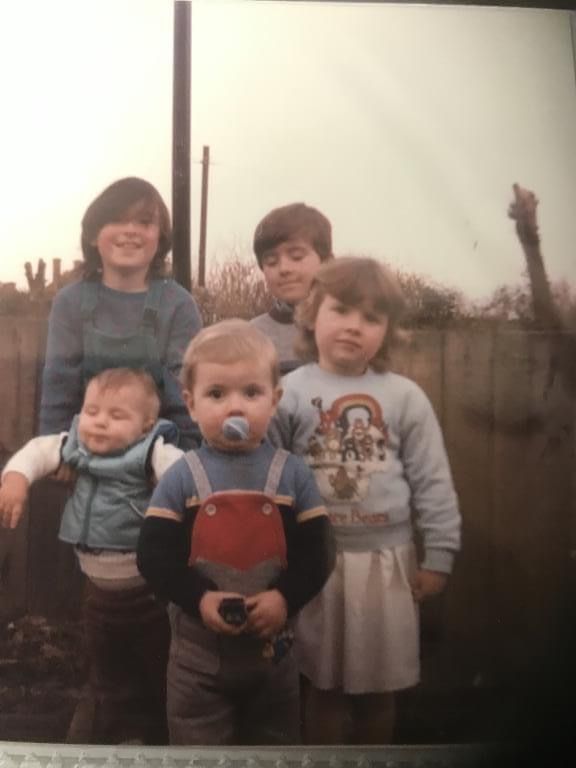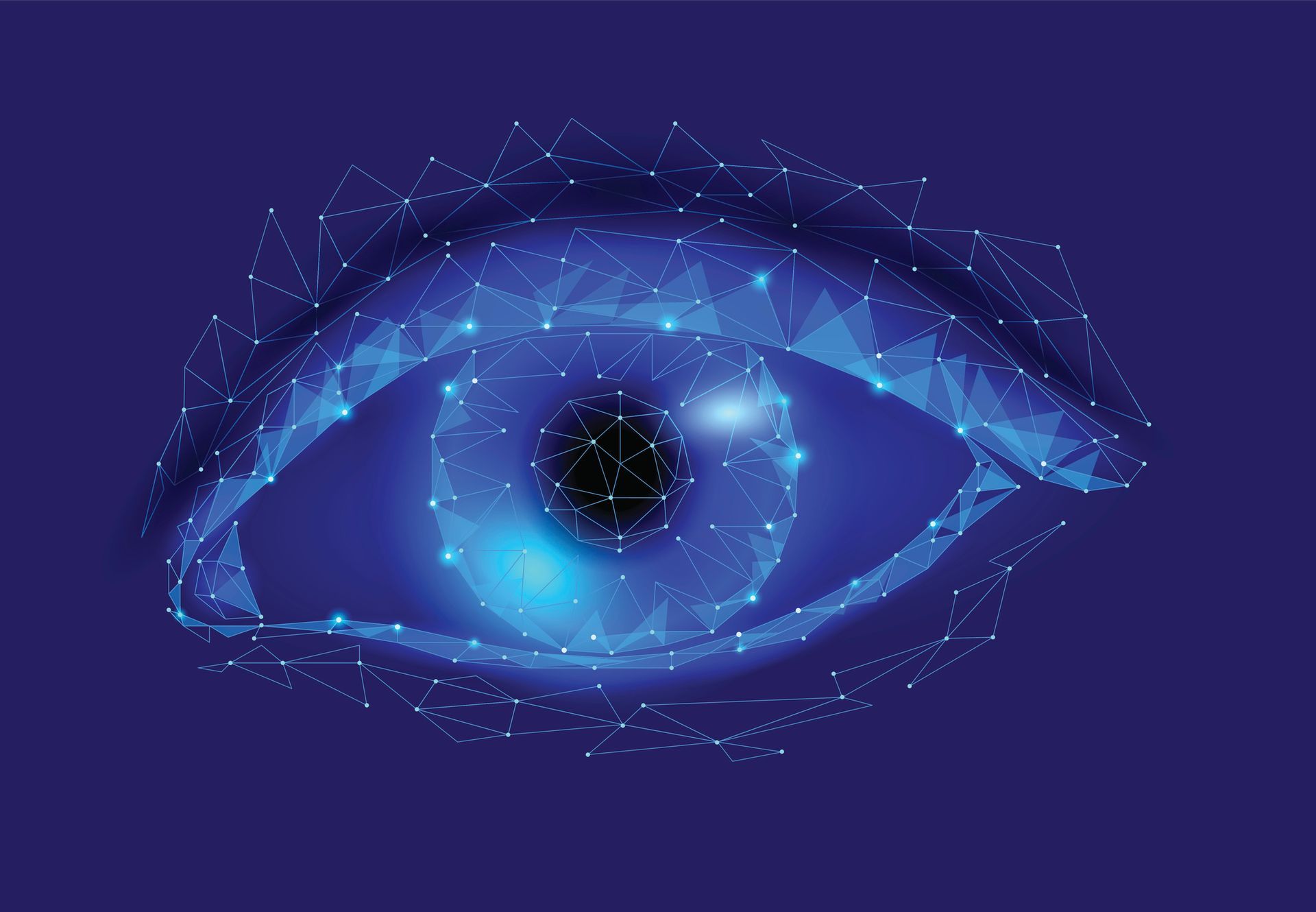My Motivation for Neurodiversity Unravelled
My Journey and Motivation to Break Stereotypes

Me in the back right - "I never liked making eye contact or looking at the camera"!
Growing up in the 1980s, the world I experienced was not kind to those who didn't fit into its narrow boxes. I didn’t understand it at the time, but my struggles with undiagnosed autism and ADHD combined with my queerness meant I often felt like an outsider in a world unwilling to accommodate difference. I grew up in an environment shaped by Section 28, a UK law enacted during Thatcher’s era which criminalised the "promotion" of homosexuality by local authorities and schools. This law created a culture of fear and silence around LGBTQIA+ issues, making it nearly impossible for queer individuals to find support or representation. Teachers, often out of fear of reprisal ignored my needs and the broader societal climate made it difficult for anyone who was "different" to be seen or supported.
For most of my life I had a very limited understanding of autism and ADHD. I thought it was something that looked like the "Rain Man" stereotype, someone who needed constant care or someone who had extraordinary abilities in a single area. I also saw autism as something associated with more profound disabilities, especially given the portrayals in media such as Atypical and The Good Doctor. These depictions while valid for some never seemed to match my experiences. I was left feeling even more disconnected, like I didn’t belong anywhere.
Growing up I never understood that autism could look so different from these mainstream portrayals. My experiences were complex and subtle. My autism didn’t present in the stereotypical ways. Instead it was hidden beneath layers of social anxiety, sensory overload and an overwhelming need to mask my true self. But despite the complexity of my experience, I’ve only recently identified with what was once known as Asperger’s Syndrome. I was formally diagnosed just last year, but the term had resonated with me long before then. In my twenties, I read a book about Asperger’s, and it was like a lightbulb went off. The descriptions matched so much of what I had experienced. Yet, at the time I lacked the skills and knowledge to pursue a diagnosis. I carried that resonance with me silently until I finally had the tools to seek out answers and validation.
What made things harder was the fear around my queerness. As a "camp" person in the 1980s, teachers were often afraid to even acknowledge my identity. Homophobia, fear of reprisal and the deeply ingrained societal stigma around anything non-heteronormative created an environment where my needs both neurodivergent and queer were overlooked. Teachers were often paralysed by fear of what supporting me could mean for their careers or their reputations. My needs were ignored not because they couldn’t see them, but because they feared the consequences of acknowledging them.
Social interactions were my biggest challenge. I never quite fitted in with the other kids at school. I found comfort in relationships with older women, those who had a nurturing, almost "motherly" energy that made me feel understood. These were the people who didn’t expect me to conform to social norms that felt alien to me. They provided a space where I could be myself without judgment.
To cope with the social pressures as I entered adult life, I turned to binge drinking, pacing around rooms before social events just to calm my anxiety. It became a way to socialise and survive, though it often became a joke to my friends. My pacing and drinking habits were laughed at, but for me, it was about survival not fun. And this became a reflection of the societal pressures I faced, pressures that left me feeling disconnected from who I truly was.
My experience as a neurodivergent person in the 1980s, combined with the climate of fear around being openly gay was incredibly isolating. In an era where policies like Section 28 criminalised any positive representation of LGBTQIA+ identities, the space for me to be both neurodivergent and queer was practically non-existent. I was left to mask my differences, both neurodivergent and sexual just to survive.
This isolation and lack of understanding connects deeply with what many have termed the "Lost Generation," individuals who grew up with autism before the "epidemic" of childhood diagnoses that began in the 1990s. These were people who, like me went through their formative years without recognition or support. As highlighted by Jennifer Scriven and others interviewed in the 2017 Interactive Autism Network (IAN) report, growing up undiagnosed meant facing bullying, misunderstanding and blame. Teachers and peers alike often viewed us as the problem, insisting that our differences were character flaws rather than signs of a neurodivergent brain.
In the 1970s and 1980s, autism and ADHD were diagnoses reserved for children with severe developmental delays. People like Jennifer Scriven, diagnosed with Asperger's at age 48 spent much of their lives unaware of why they struggled socially or academically. Stories like hers resonate deeply with me. Like many in this "Lost Generation" I was often bullied and misunderstood with my differences dismissed as eccentricities or failings. Social struggles were a recurring theme as were sensory challenges and emotional overload, yet none of these were recognised for what they truly were.
Many of us who were diagnosed later in life have found relief in understanding our neurodivergence. Yet this recognition comes with bittersweet reflections on missed opportunities. What might have changed if we had been diagnosed earlier? If teachers had been equipped to support us rather than dismiss us? If bullying had been addressed rather than ignored or blamed on us for being "too weird"? For me, these "what ifs" underscore an essential truth, not every autistic person requires psychiatry or medication to thrive. What we all need, universally is a change in environments that allow us to succeed and flourish as we are.
I am aware that the concept of neurodiversity is sometimes questioned. Critics argue that it does not fully address the needs of individuals with profound disabilities who require significant daily support. I do not wish to take away from the reality of their lives or the challenges they face. However, I believe strongly in the diversity within the neurodivergent experience. While neurodiversity celebrates the strengths and perspectives of those with neurological differences, it is also crucial to recognise and advocate for the care and support needed by those with high support needs. Both perspectives can coexist. This enriches the conversation about inclusion and equity.
The language we use to describe neurodiversity continues to evolve shaped by movements, media, and the people living these experiences. Terms like "neurodivergent" and "neurotypical" have become widely used, while newer expressions like "neurospicy" spark both enthusiasm and critique. For some these terms offer a playful way to embrace identity; for others, they risk oversimplifying or undermining the serious challenges faced by those in the community. Language has power, and with that power comes responsibility. It is essential to listen to individual preferences and ensure that the words we use uplift and affirm all members of the neurodivergent community.
This understanding forms the foundation of Neurodiversity Unravelled which focuses on adapting external factors and creating supportive spaces rather than placing the burden of change solely on individuals. By challenging societal misconceptions and addressing systemic barriers we aim to create meaningful and sustainable outcomes for neurodivergent people and their communities. A social ecological approach, recognising the interaction between individuals and their environments allows us to work toward inclusive, affirming spaces where neurodivergent individuals feel empowered, respected, and valued for who they are.
Baron-Cohen, S. (2017). Interactive Autism Network (IAN) research report: A lost generation - Growing up with autism before the “epidemic”. Kennedy Krieger Institute. https://iancommunity.org/
Ellenby, W. (2021). Autism identity and the neurodiversity movement: Challenges for individuals with high support needs. [Blog post].
Galyna, A. (n.d.). Neurodivergence and the diversity of neurological experiences. Shutterstock Images. Retrieved from https://shutterstock.com
Owsley, R. (2022). Neurospicy: Embracing identity through creative language. [Blog post]. Medium.
Singer, J. (1998). Neurodiversity: The birth of an idea. Unpublished honors thesis, University of Technology Sydney.
Sullivan, D. (2023). Is neurospicy a playful term or a way to avoid disability discourse? Neurodivergent Podcaster Blog. https://neurodivergentpodcast.com

